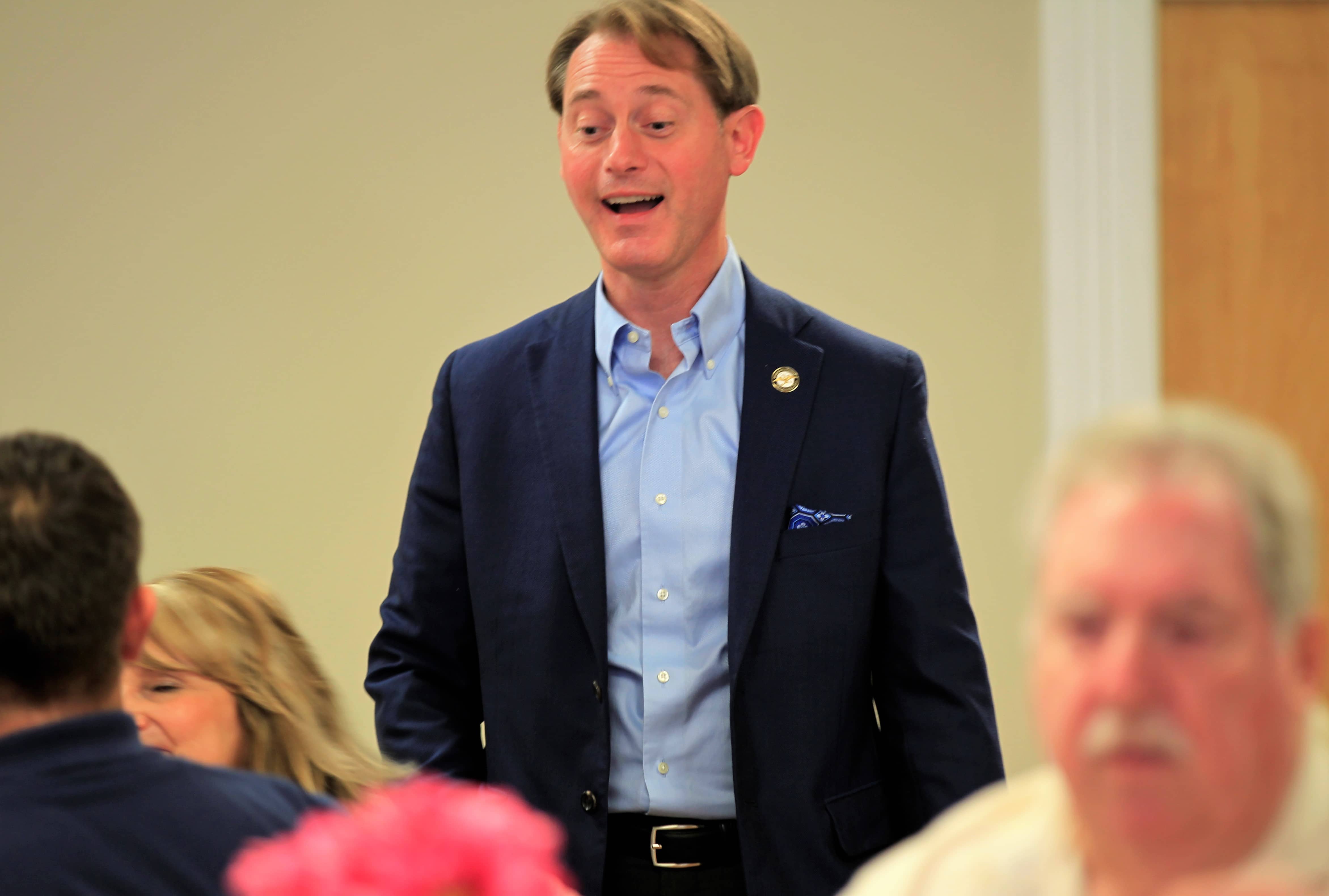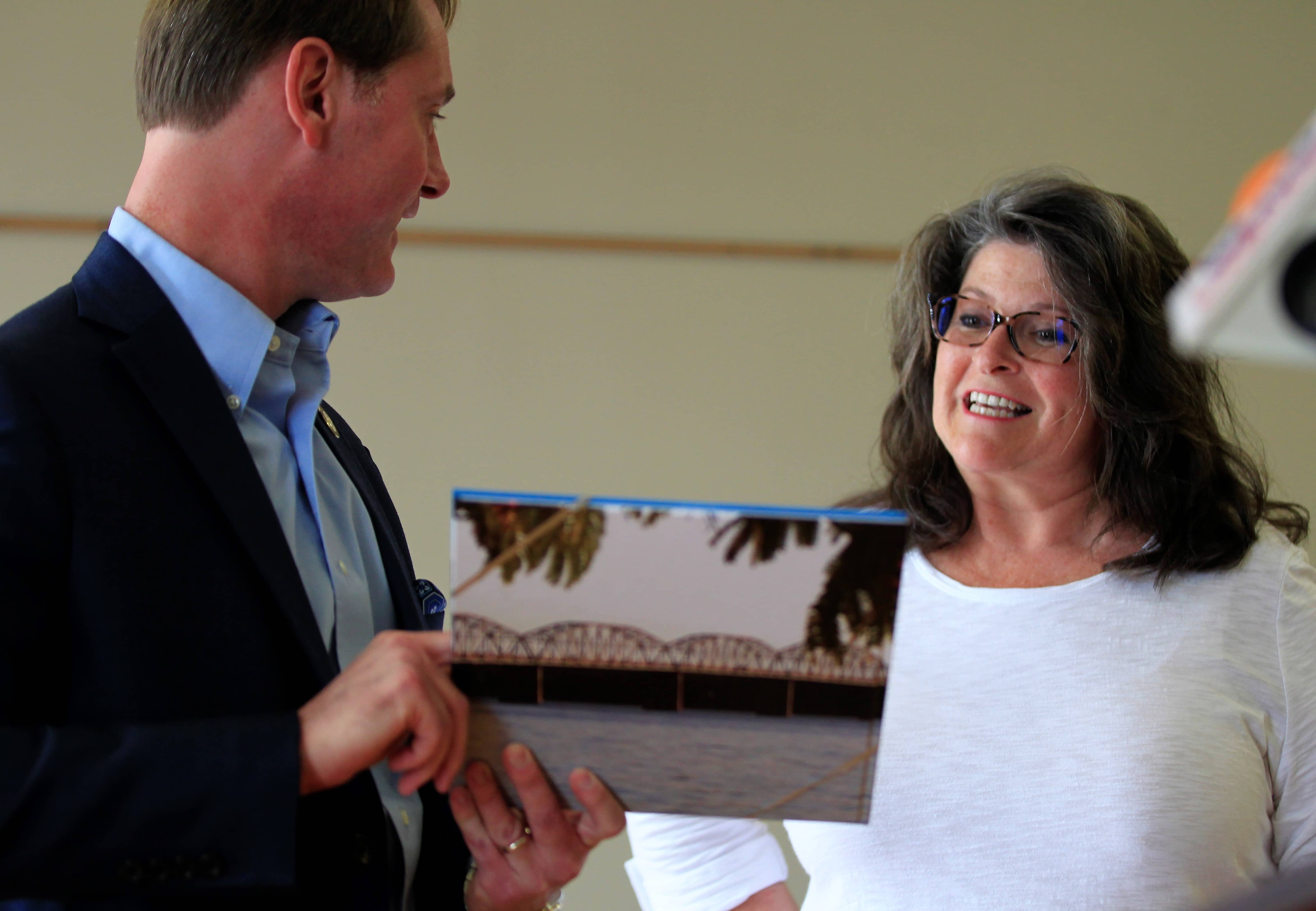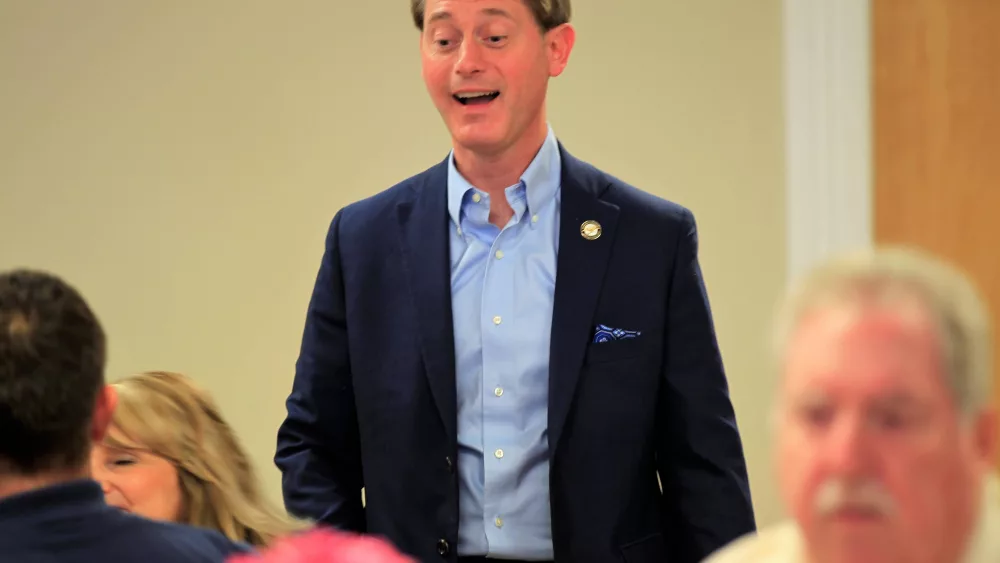
As Secretary of State Michael Adams approaches the end of his first term, time remains to work more for the Commonwealth.
Already his office has been largely responsible for Kentucky’s lauded bipartisan efforts of expanded voting, voter ID requirements, paper ballots and the scores of upgraded voting machines across 120 counties.
But during Thursday’s Trigg County Chamber Lunch & Learn, Adams said there are three specific subjects his office is aiming at over these next 18 months: improved civic literacy, shoring up vulnerabilities for misinformation, and the dangerous polarization of this political climate.
Adams said it was “terrifying” how little Kentuckians know about local, regional and state government, what office does what, and what level of government does what, and that “civics” is often missing in curricula.
He didn’t blame educators.
In turn, Adams is seeking a “Civic Seal Program” for high school graduates. Voluntary and free, his office is hoping to work with schools, where a student will get a sticker on their diploma if they pass certain curriculum for civic preparedness.
He plans to reach out to high schools and civic centers, like the YMCA, to educate youth and find poll workers in Kentucky — of which the entire state remains in desperate need. Adams said roughly 15,000 poll workers spread over 120 counties is needed in order to make an election effectively run.
Regarding America’s susceptibility to misinformation, Adams said Republican and Democrat lawmakers have learned that Russia hasn’t been tampering with elections through collusion or hacking, but more or less through the production of false digital social media posts — which in turn has wrecked American voter confidence.
He added that “this…is how rogue powers interfere,” and that he deals with this stuff “all day, every day.”
This inflammation, of course, has led to the documented dissolution of civility in politics. Adams said he’s currently reading “The Big Sort: Why The Clustering Of America Is Tearing Us Apart” by Bill Bishop and Robert G. Cushing, which is a book using demographic data to demonstrate how homogeneous communities — essentially echo chambers — are creating an “ideologically inbred” society.
A Republican who grew up in a once 88% Democrat McCracken County, Adams said it was okay to disagree — but not hate.
For the first time in Kentucky’s history, more Republican voters are registered than Democrats. Voter participation, in general, is either stable or at all-time highs across the state. Election equipment in every county is now subject to an open, public event for certification.
And yet, some pockets in the Commonwealth believe both the 2020 and the 2022 elections were jimmied, when in actuality they’ve been some of the safest, securest in the state’s history.
Adams said transparency has been the most important part of his tenure.
Furthermore, Adams said he’s been paying attention to the continued dialogue in Christian County — where, following the May primaries, concerns were raised after confusion and a lack of communication led to the shuffle of ward votes in the city council race.
As both the Christian County Fiscal Court and its Board of Elections plan to meet Friday to discuss poll-worker pay, precincts vs. voting centers and more, Adams said it should always be up to each county what avenues need to be taken to ensure voting integrity.
He also said that he didn’t want mistakes to occur in local elections, and if that means precincts over voting centers, make it so.



